
Discover more at Hill Top
Find out when Hill Top is open, how to get here, the things to see and do and more.
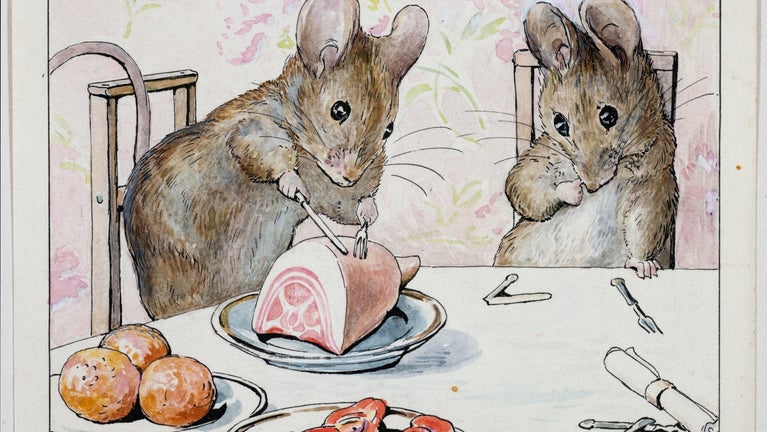
Discover Hill Top, Beatrix Potter’s holiday home, sanctuary and studio. This cosy converted farmhouse is filled with Beatrix’s belongings and inspired many of her famous stories.
For Beatrix Potter, Hill Top provided a refuge away from London and became a place of independence and inspiration. She purchased Hill Top Farm in 1905 with the profits from her first illustrated books, including The Tale of Peter Rabbit (1902). Beatrix extended the old farmhouse and furnished it with well-chosen antiques.
If you're visiting Hill Top this year, we've got some new treats lined up for visitors to see and get involved in, based around Beatrix Potter's beloved story, The Tale of Two Bad Mice.
A new display exploring how Beatrix drew inspiration for her tales from the pets and people in her life and celebrates the layers of imagination within this story. Beatrix’s manuscript for The Tale of the Two Bad Mice, her sketches, finalised artworks and the doll’s accessories which inspired them are all displayed together, to provide visitors with a greater understanding of her creative process and her exacting attention to detail. At the heart of this display is the newly restored dolls' house. In it lies the dolls’ food and accessories which feature in The Tale of Two Bad Mice.
The house and its contents have recently returned from the National Trust's conservation studio in Knole, and are back on display looking better than ever. The house contains state-of-the-art lighting which can be controlled by visitors in order to spotlight each particular room. Animations of Beatrix’s beloved mice will also be running and there's even a dolls’ house replica waiting to be played with.
To celebrate the conservation project, we'll also have a ‘behind-the-scenes’ film which details the specialist techniques and treatments used to restore the dolls' house and its contents.
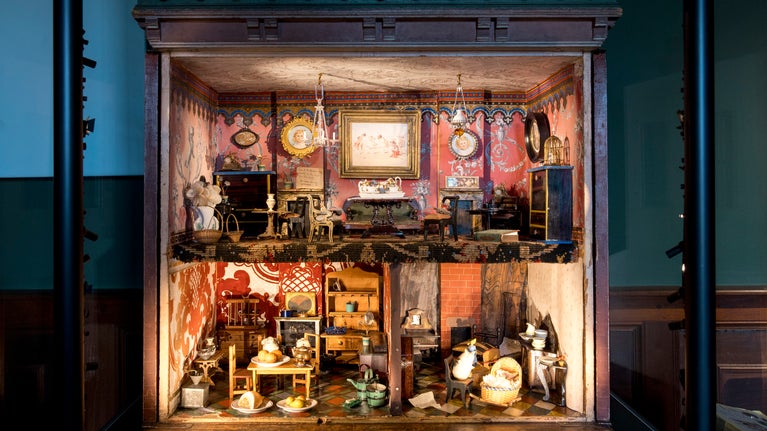
A real treat for fans is a new acquisition of a handwritten letter from Beatrix to a young American. Visitors will get the chance to see its contents for the first time, which include a description of her pet mouse Hunca Munca and an illustration of him resting on Beatrix's finger.
A new installation called 'Mischief in Miniature' gives you the chance to spot Hunca Munca and Tom Thumb as they get up to all sorts of mischief throughout the house. Just as if they have escaped Beatrix's book, little felted mice can be found in various nooks and crannies throughout the house, lit by tiny candles and lanterns to bring an extra element of magic to your Hill Top visit. Keep an eye out for these cheeky mice!
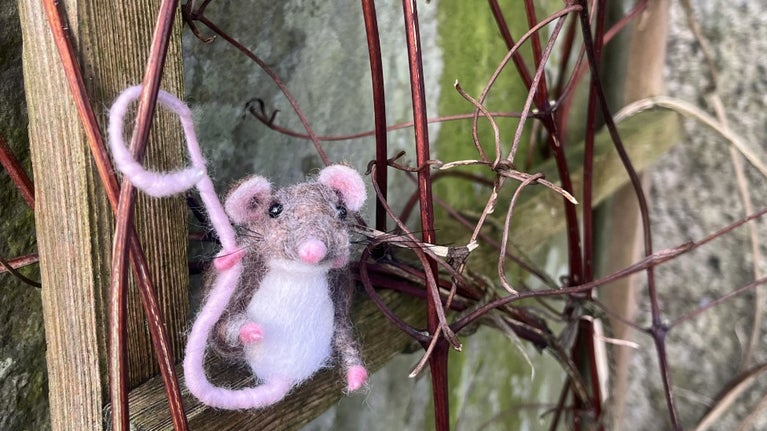
Step inside the Scullery to find a new display charting Beatrix Potter’s transition from Lake District tourist to countryside protector. Discover how her legacy has shaped the Lakes we know and love today, as well as the work the National Trust’s rangers now carry out to protect this special landscape. Beatrix generously donated 15 farms and cottages, 4,000 acres of land and flocks of pedigree Herdwick sheep to the National Trust upon her death in 1943, for us to continue to care for and enjoy.
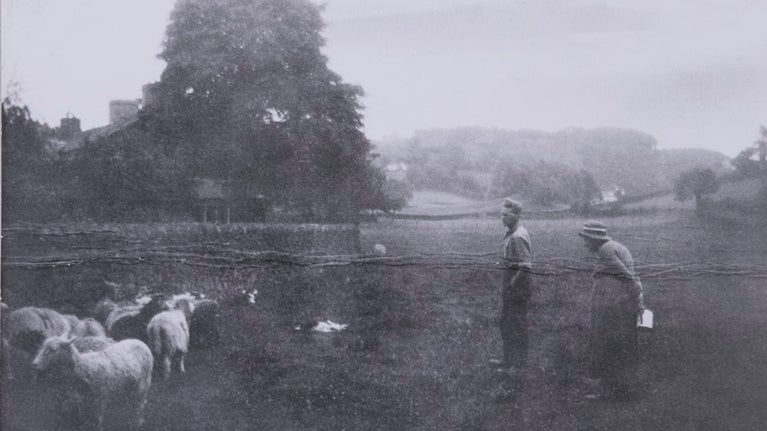
Don’t miss Beatrix’s coded recipe for American Gingerbread, on display for the first time in the Treasure Room.
Step inside Hill Top and you'll be surrounded by Beatrix Potter's own belongings. The items and furniture she carefully chose to leave here bring her personality to life in each room and cupboard.
Over the years Beatrix added touches of luxury to Hill Top – look out for the marble fireplaces and fine china. She also displayed personal items, including gifts from friends and family. The plates on the kitchen wall were painted by Beatrix’s father Rupert Potter.
The Treasure Room at the top of the stairs includes a display of Beatrix’s most precious things, including the desk that stored her coded journal.
The interiors of Hill Top feature in many of Beatrix’s little books after 1905. In The Tale of Tom Kitten (1907) it is home to Tabitha Twitchit and her three mischievous kittens, Moppet, Mittens and Tom. In The Tale of Samuel Whiskers (1908), Tom Kitten is captured by rats who scamper up Hill Top’s staircase.
Children will delight in spotting areas in the garden and house that relate to the little books – Tom Kitten’s gate for example, Jemima Puddle-duck's rhubarb patch, the window and grandfather clock on the half landing from The Tale of Samuel Whiskers and the famous porch and front door from The Tale of Tom Kitten.
In 1913, Beatrix married William Heelis and moved to nearby Castle Cottage. However, she kept Hill Top as a place to work, entertain guests and display her collections.
Hill Top remained a working farm during Beatrix’s lifetime, as it is today. As you make your way around the house, take time to notice the small things which were as carefully chosen by Beatrix as some of the largest pieces of furniture.
Beatrix did much to promote the Herdwick breed and was the first woman to be elected president of the Herdwick Sheep Breeders Association, although she died before she took up the chair. You can see some of the awards and trophies she won at local agricultural shows for her sheep breeding on display in the Scullery.
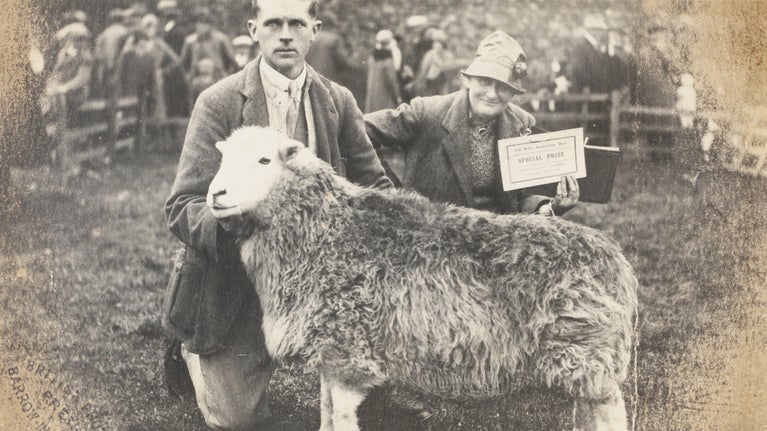

Find out when Hill Top is open, how to get here, the things to see and do and more.
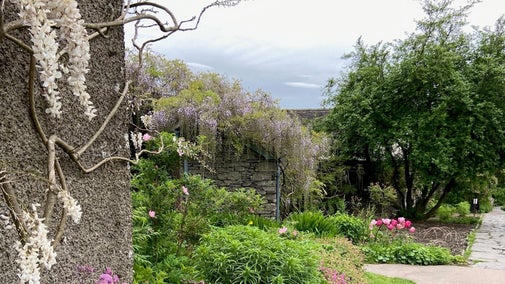
Discover Beatrix Potter's garden, restored to how it was in her time, with the carefully tended vegetable plot and views of the pretty cottage garden from the famous path.

The Hill Top shop has a variety of gifts inspired by Beatrix Potter and her life in the Lake District.

The house and garden at Hill Top are open, and you will need to book in advance to guarantee entry. If you're planning a visit to Hill Top, read this article to find out everything you need to know.
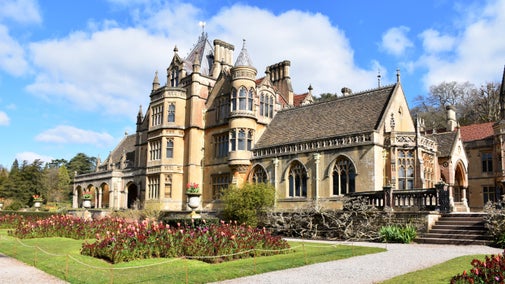
Historic buildings are a treasure trove of stories, art and collections. Learn more about their past and plan your next visit.
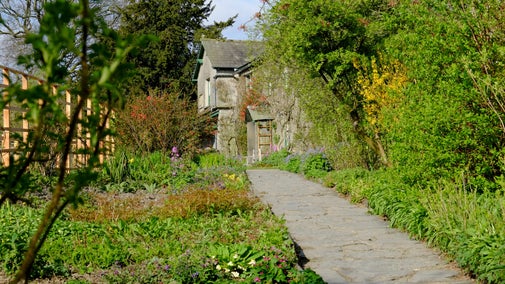
Alongside its natural outdoor wonders the Lake District also has many inspiring houses and buildings to visit, from the impressive Allan Bank where Wordsworth once lived, to the former farmhouse of Beatrix Potter.